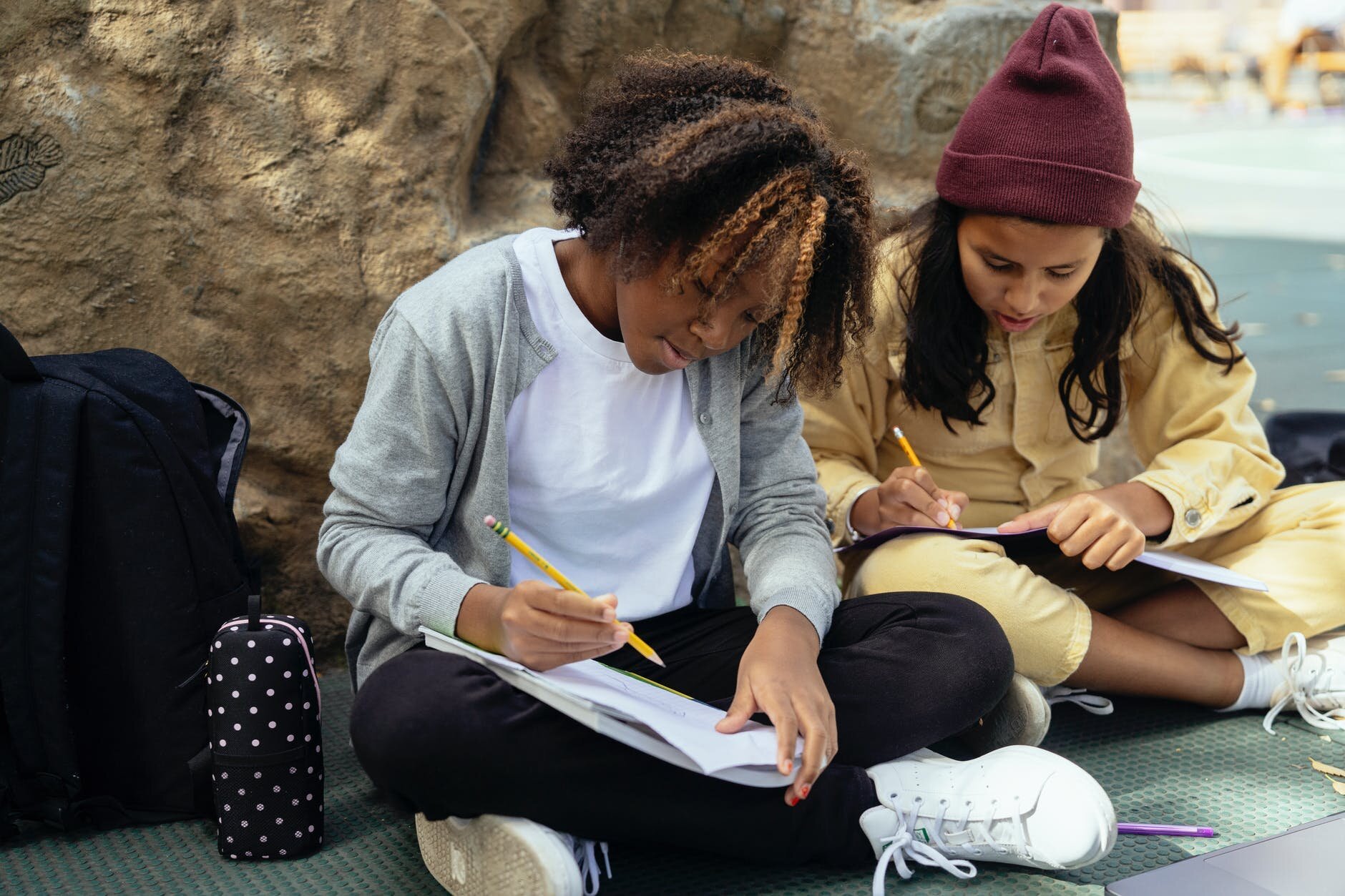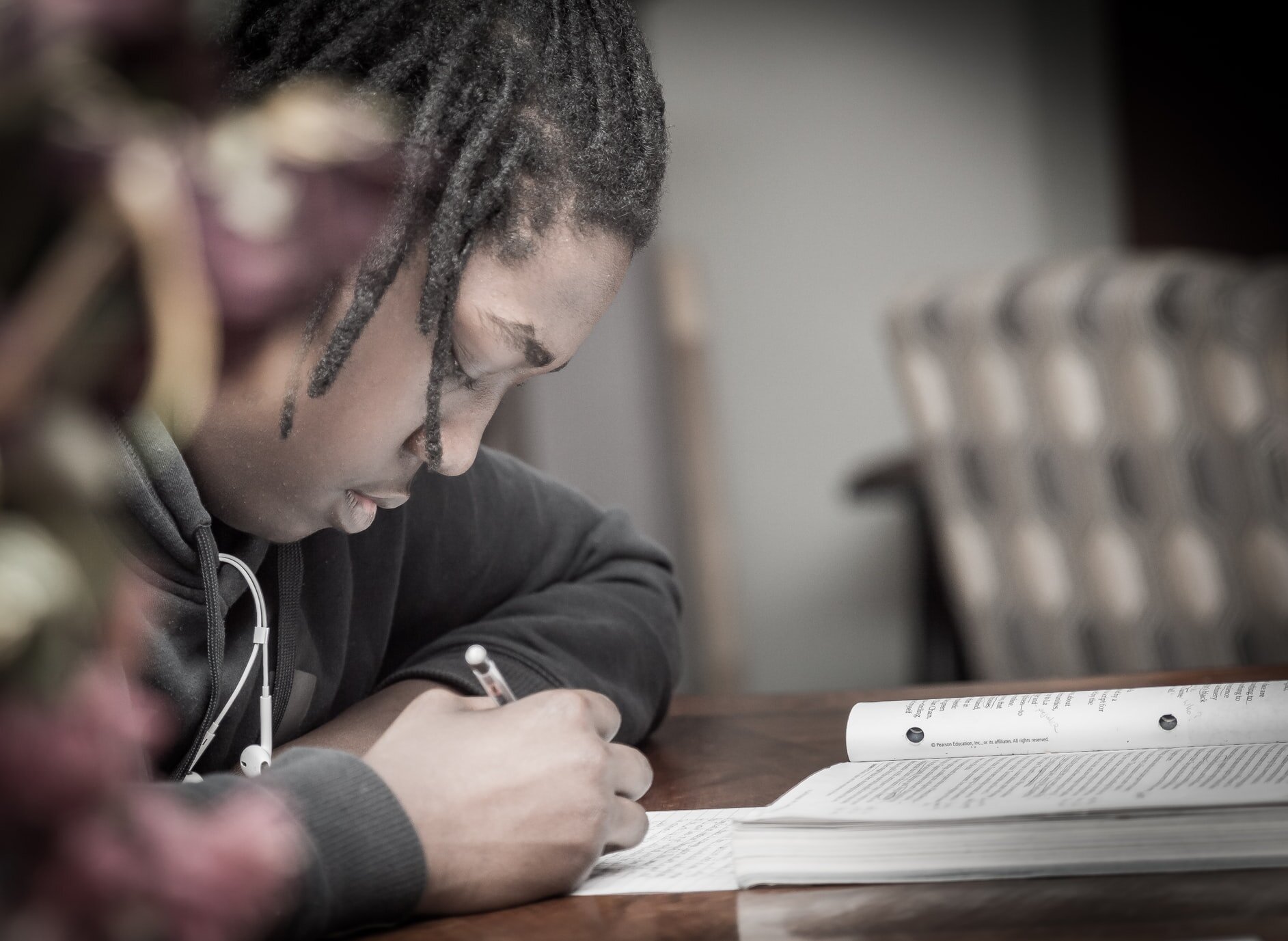WORLD REFUGEE DAY - Celebrating with writing and poetry
During our classes, Adele* likes to call me ‘Professor’, and every time this undeserved title makes me smile.
I tell her that I’m not a Professor, but rather someone who is just sharing her passion for writing with them. We sit in the room that is also a storage for textile products, and read and make comments on what she and the others have written. Adele is an asylum seeker from Togo. Francois*, who likes to write long and detailed stories, is from Congo. Some students come from Nigeria, Cameroon, and other African countries.
Ours is a ‘Creative Writing’ class, where we discuss plot, characters, time & place, dialogues, flashbacks, twists, beginnings & endings, with the aim of producing sometimes one page, sometimes a short story, which takes shape week by week. We read excerpts from short stories by Chimamanda Ngozi Adichie, Jhumpa Lahiri, Zadie Smith. During each lesson, ideas develop, inspiration comes. Once back home, I send the students prompts via WhatsApp, so that they can continue developing their plots, and read them to the class the week after.
Adele has been in Hong Kong for five years and, besides Creative Writing, she is taking classes in Painting, History, German, Spanish, English, Cantonese, Computer, Mandarin, Guitar, Philosophy, Kiswahili, Poetry, Handicraft, and Italian, from Monday to Sunday – morning till evening – holidays included.
I treasure the time I spend with my students and highly praise the work of the people who put their hearts into organising all sorts of activities offered on a voluntary basis to the asylum-seekers and refugees, who fled conflict or persecution in their countries and ended up in this very expensive city, where they struggle to make ends meet and to fill their long days of wait in meaningful ways.
Father Franco Mella has been in Hong Kong since 1974, going through all the changes of this dynamic and complex city. He is well known for his long hunger strikes, meant to support the rights of the disadvantaged people in Hong Kong, and of the refugees. Franco, as he likes to be called, opened the ‘school’ attended by Adele in 2002, originally to teach English to the locals whose children, born in China, could not get the right of abode in Hong Kong. Since 2012, the students are mainly asylum-seekers and refugees, and many subjects are taught by them. Mark*, from Cameroon, comes in right after my class to teach Philosophy.
It is important to distinguish the terms “refugee” and “asylum seeker”. According to Amnesty International, “an asylum-seeker is a person who has left their country and is seeking protection from persecution and serious human rights violations in another country, but who hasn’t yet been legally recognised as a refugee and is waiting to receive a decision on their asylum claim. Seeking asylum is a human right. This means everyone should be allowed to enter another country to seek asylum”. Although the time to process each asylum seeker’s application has sped up, many claimants are stuck for years in the place where they make their application, due to appeal and other reasons. These people rely on government subsidies, which often are not enough to cover expenses like transportation, clothing, personal items.
Each year, June 20th is World Refugee Day, as designated by the United Nations. This day honours refugees around the globe, and it is an occasion to build empathy and understanding for their plight and to recognise their resilience. In fleeing their countries, these people must rebuild their lives, often facing discrimination and hate. It is important to consider the possibility for each of them to ‘thrive’, and not only to just survive and go through deprivations and sacrifices in the foreign countries.
Asylum seekers in Hong Kong are prohibited from working and volunteer whilst they wait for their claims to be determined and this rule also applies even after they have been recognised as refugees, except for the rare occasions when the Director of Immigration considers some “exceptional circumstances”.
Depriving refugees of the right to work robs them of the ability to re-establish their worth as human beings. This is the reason why a number of organisations in Hong Kong - like in the rest of the world - offer them financial support, help, and legal aid, or organise courses and activities to keep them busy and active while learning new skills.
I met Tegan Smith during an online poetry reading. The charity organisation that she runs, Grassroots Future, co-organised a Poetry Competition on the occasion of World Poetry Day (Sunday 21st of March), calling poets of the refugee community to submit their works. For World Refugee Day, Grassroots Future has organised a community event. “This year,” Tegan says, “the day will feature performances by poets from the refugee community, music, comedy, a short film screening, and talks by different refugee or support-group organisations. We'll also have a few booths for arts and crafts to showcase the creative talents of Hong Kong's refugee community”.
Tegan’s interest in the refugee community dates back to 2014. “I had done my legal training in Australia at a firm which gave pro bono advice to refugees and new migrants”, she says, “so I was already interested in the topic. I then recognised the gap between traditional charity organisations' services and the needs of refugee communities. In Hong Kong, there weren't many initiatives with a community focus. A year later, I decided to start Table of Two Cities to help change the narrative and empower the refugee community, to find ways to amplify their voices. Last year, we received our charity status, and Table of Two Cities is now an ongoing community initiative under Grassroots Future. Grassroots Future works to build capacity among refugee-led organisations in Hong Kong through education, well-being, and community outreach”.
Tegan, who is herself an accomplished poet, believes, in particular, in the power of words. “On a personal level”, she explains, “I know that writing has incredible restorative power in helping people to heal. There is a misconception that the refugee community – locally or abroad – is voiceless. In reality, there are many voices that need to be amplified. Our organisation spotlights the medium of poetry as it is a powerful tool to tell a story, evoke feelings and touch people. Practically, every culture has a literary tradition, and poetry is something that connects us beyond country lines. We held our inaugural poetry competition earlier this year and received 22 entries from writers from the refugee community across Hong Kong – including from current detainees at Castle Peak Bay Immigration Centre. The top three writers from this competition are being published in Cha: An Asian Literary Journal and this year's winner is also developing a chapbook of poems with Spill Stories. We will also be planning another event soon and we hope to organise similar ones in the future”.
As I walk back after my lesson, I always think about the stories written by my group. There are many memories of their countries that emerge in-between the lines: faces, places, smells, rituals, traditions. They make the tapestry of storylines that start in one way and end up in another, taking twists and turns, coming to unexpected frictions or resolutions. Rainer Maria Rilke said, "To write poetry is to be alive". For those who are suspended, parked in temporary homes to which they do not belong, I would say that to express oneself through any form of writing and art, is to be alive.
Cover photo and other images are taken from the web
For privacy reasons, the people portrayed are not the ones mentioned in the article.
*Not their real names.
Read here about other interesting initiatives, based on art and creativity, that have been planned for this special day.







